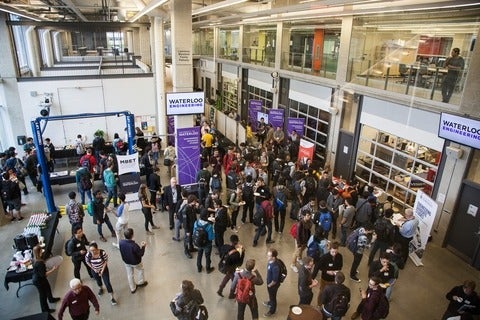Seminar “Life is Good: A Journey From Energy Storage To Protein Therapeutics” by Yunfeng Lu, Department of Chemical and Biomolecular Engineering, The University of California Los Angeles
ABSTRACT: Human civilization has been driven by harvest and utilization of solar energy. Developing better technologies leading to more effective energy harvest and utilization is being emerged as one of the most essential research themes. In this presentation, two topics, energy storage and protein therapeutics, will be covered. The first topic will focus on design and fabrication of electrochemical devices such as supercapacitors, batteries, and fuel cells. Recognize that living organisms are made from basic elements (e.g., C, O, H, N and P), consume energy and repro

